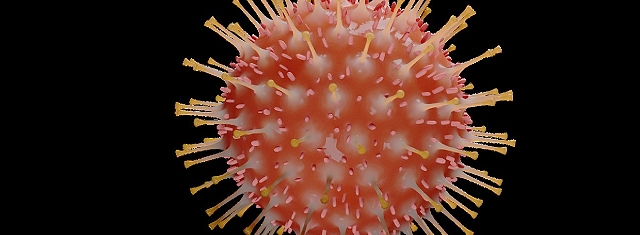Health
Spanish investigators seeks vaccine against COVID-19 using a Coronavirus antigen
To stimulate immunity

Corona (Source: CSIC)
USPA NEWS -
The industrial scale process of the vaccine candidate against the COVID-19 has already been carried out, which would significantly bring forward the industrial phase of manufacturing, human testing and its production.
A team of researchers from the National Scientific Research Council (Spanish acronym: CSIC) is looking for a vaccine against COVID-19 through the use of a gene of an antigen of the Coronavirus SARS-CoV-2 to stimulate the immunity of recipients. The method consists of placing a gene of an antigen in a synthetic 'vehicle' of the DNA (a plasmid) that can be introduced into the patient's body to induce protection against the infection. The team is synthesising the corresponding DNA molecules that will be introduced into the vehicle and within two months this can be tested on mouse models.
This procedure has already been tested out on a vaccine for Canine Leishmaniasis, which is now in phase IV, whereby an application has been made to the European Medicines Agency for authorisation for its manufacture and commercialisation, explained the director of the study, the honorary research professor of the CSIC, Vicente Larraga, from the Margarita Salas Biological Research Centre.
The development of this protective vaccine has an additional benefit - the industrial scale process of the vaccine candidate has already been carried out, which would significantly bring forward the industrial phase of manufacturing, human testing and its subsequent production if the results of testing were positive. This is the third CSIC project that is seeking a vaccine against the Coronavirus, together with those headed up by Luis Enjuanes and Isabel Sola, and by Mariano Esteban and Juan García Arriaza, both through the National Bio-technology Centre (Spanish acronym: CNB-CSIC).
"This is a novel recombinant DNA vaccine that introduces the gene of an antigen of the parasite into the animal to be vaccinated instead of the attenuated parasite, a fragment of it or a purified protein, which induces protection against the infection from it," specified Vicente Larraga. The researcher explained that this vaccine uses a synthetic plasmid of DNA (pPAL) as a vaccination vehicle, which has been developed in his laboratory and which allows the integration of the gene of the antigen chosen from the parasite in the genetic material of the cells of the recipient mammal and the production of the antigen therefrom, which is then recognised by the immune system of the animal vaccinated which induces protection when the infection occurs naturally.
This procedure can also be used in the case of the SARS-CoV-2 virus, since it has been developed as a vehicle for mammals, including man. In this case, the protein S (spike) from the surface of the virus and its sub-units S1 and S2 have been chosen as the potential protective antigen of the vaccine, which are used by it to anchor in the membrane of the target cell and penetrate therein.
"This is thus a synthetic vaccine with a DNA vehicle in which the genes corresponding to the protein S of the complete virus and to the sub-units S1 and S2 are introduced into it. At present, the corresponding DNA molecules are being synthesised to be introduced into the vehicle after its development. This process should be developed over the course of the months of May and June. Subsequently, their safety and efficacy will be tested against an infection of the virus in a mouse model, either in transfected animals with a human receptor of ACE2 or similar. If the results are positive, phases I and II of testing on humans will begin," said Vicente Larraga.
Liability for this article lies with the author, who also holds the copyright. Editorial content from USPA may be quoted on other websites as long as the quote comprises no more than 5% of the entire text, is marked as such and the source is named (via hyperlink).





